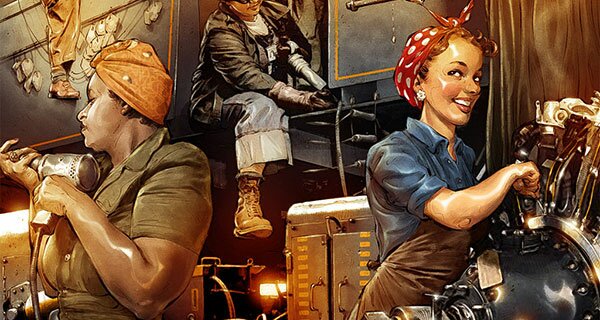Due to the way in which rape has been legally, politically, theoretically constructed, and genderized, men as a whole are more often than not disregarded as victims of sexual assault. The only time we see men appear in the literature is often as perpetrators. As an example of this the FBI did not change their definition of rape to include men until January of 2012. Rape is often thought of as a crime that can only happen to children, and women. This is because collectively we have specific perceptions of men, and women. That is, as a society we have images in our minds about what types of crimes men, and women are victims of. Coupled with our generderized believes about sexuality the result is that we, as a society, see women as the victims of sexual assault, and men as the perpetrators.
This idea of men as the predators, and women as the victims is not a new one, it is a social construction that has taken place over years, and is extremely hard to deconstruct. The problem is that society has not constructed men in a way that allows them to be seen as, or thought of as victims of this crime. Society is far more likely to be able to see a woman as a victim of sexual assault, and a man as her perpetrator. This is because as a society we have constructed women to be: weak, vulnerable: quiet, passive, and submissive. Femininity, is therefore, associated with being the victim. Masculinity, on the other hand, often is associated with traits such as being: strong, tough, assertive, and dominant. In other words we expect men to be in control at all times, making it unlikely to be able to see them as a victim of such a crime. What I am getting at here is that sexual victimization is extremely gendered, and by having it as such men are ignored as victims of sexual assault. This generdization not only ignores men as victims, it reinforces the stereotypes that women are victims, and men are ‘unrapeable’. It also deters any man from coming forward to the police, particularly if his assailant was a women.
It is important that we do not only focus on women, but that we also include men in our attempts to understand sexual victimization. There are two simple reasons for this. First, because we cannot assume that we can apply what we know about reporting rates, and women, to reporting rates, and men. In other words, men and women are not the same and need different types of responses in order to be encouraged to come forward. And second, if we always portray men as the perpetrators of sexual assault, we will run the risk of sending the message that men cannot be the victims of this crime. According to a prominent researcher in the area, Karen Weiss, when men are studied as victims of sexual assault researchers only target two areas: children, and prison rape. While these are important areas of research, as Weiss points out, we tend to forget all the other victims of sexual assault that do not fall into these two categories.
The study that I am doing seeks to expand on the limited amount of research on men as victims of this crime. Specifically, this study seeks to find out what, if any, impact the social construction of gender has on a victims decision to report crime. According to statistics Canada only 9% of sex assaults are reported to police every year. This is an alarming number, and I want to find out why this is happening. Why aren’t men, and women reporting this crime?
By participating in this study you would be helping us to better understanding the differences, and similarities, between men, and women, in regards to sexual victimization. We will be able to start to get a better understanding of why both genders do not feel comfortable with reporting, and what we could start doing to make this better. This could include such things as: what resources both men, and women need to cope with what has happened, and how different agencies could encourage people to report. This could include: social services, medical personal, and law enforcement. By participating in this survey you would be potentially helping future victims of this terrible crime.
Nicole Maccinis
Cite This Article
Dr. S. (2012). Gender and Sexual Violence. The Socjourn. [https://sociology.org/gender-and-sexual-violence/]

The Rocket Scientists' Guide to Money and the Economy: Accumulation and Debt
By: Dr. S.Have you ever opened up an economics textbook and looked for a definition of money? Chances are you haven’t but if you have chances are you didn’t find the definition. Introductory economics texts, and even advanced economics text, do a remarkably dismal job of revealing the nature of money. The closest the common man gets to a proper definition of money is that it is a medium of exchange, but a medium for exchanging what? To add to the problem, consider the fact that money is just pretty colored paper with no intrinsic value. It only becomes valuable because we (i.e. humans) give it value. But how do we give money value? Is it economics, politics, or black magic?
The global economy is teetering on the brink of collapse and even the uber wealth admit it is true (as this Youtube interview demonstrates). Find out the truth about the nature of money and find out why debt and the easy way money can be accumulated is behind the growing crises of today. Find out what you need to know, and what we all need to do, to stave off global catastrophe. Discover the truth, save the world. Read the Rocket Scientists’ Guide to Money and the Economy: Accumulation and Debt.
[ Kindle | Amazon.com | Book Finder ]
Full Entry
 The Socjourn A New Media Journal of Sociology and Society
The Socjourn A New Media Journal of Sociology and Society



How about the occasion where the victim reports the assault to the police and the guy who shows up to take the report is a first generation Hmong who culturally does not comprehend the rights of women in the United States? All the while taking the report the officer lacks any concern and shows more contempt for the victim than anything. Human rights anyone? Rights as a citizen anyone? Dignity anyone?
Can you imagine what the tone would have been if it were a man reporting an assault inflicted by a woman? What about crimes committed by women of social influence who have money to make crimes go away?
Lucy makes some interesting comments. We fail to examine the methodology of collecting crime statistics, which are usually stigmatizing and erroneous. The United States has many victims of crimes, of all types, sizes and genders.
Indeed Robert.
The “Land of the Free” and the “Land of Opportunity” is not what it claims to be and often is as unjust and as uncivilized as Third World countries where it is oK to rape and murder those (genders male and female included) considered to be in the lower levels of socioeconomic stratification.
I am reading Half the Sky by Nicholas D Kristof and Sheryl WuDunn. In it’s contents are stories of how women and men in empoverished countries are used as tools until they get disobedient, in other words begin to speak out on behalf of themselves and others who are oppressed. Crimes are being committed against them even by those who are paid by the government to protect them as their social status shifts from obedient and subservient citizen to an obstacle that must be removed, (or shooved out of the way). The book highlights how these individuals organize and form groups that grow into organizations that aim to stop the abuse that has been accepted as customary or traditional. A huge weapon for the impoverished in fighting these abuses is to become educated.
What I find interesting, is how the United States can be so arrogant (or is it selective blindness) as to think these kinds of abusive and inhumane behaviors happen in the Third World and not on their own soil. Here in the United States we are better at hiding the oppression and abuse through sophisticated systems and the use of advanced technoloby to “wall-off” or isolate, mutilate and other forms of torture. What would get more men and women to step forward in reporting crimes? Knowing where to go and that they ARE indeed a victim of abuse, even when the perpetrator has an influential social status.
There is a culture of violence in the United States due to a warped capatilistic standard. The number of murder trials involving extreme violence, has increased, to a point where women are always at risk. Just follow the christopher vaughn case. One might point also to the Drew Peterson case. Both violent endings to their wives’ lives. Lucy is right again. At least the way I interpret her comments.
“At least the way I interpret her comments.”
You got it right. Part of the problem is that we have lowered the standards. When these kinds of obvious murders occur it is really not much of a surprise to some and oftentimes friends and family were aware of the ongoing abuses and looked the other way or even denied that they were happening..
What I mean by lowering standards is allowing women and men to be sexualized by the media where they are no longer people but objects for pleasure. It’s in music, movies, advertisements…you really can’t get away from it. Bodies have become a commodity. By accepting this we are lowering the standards and at the same time building a tolerance for violence.